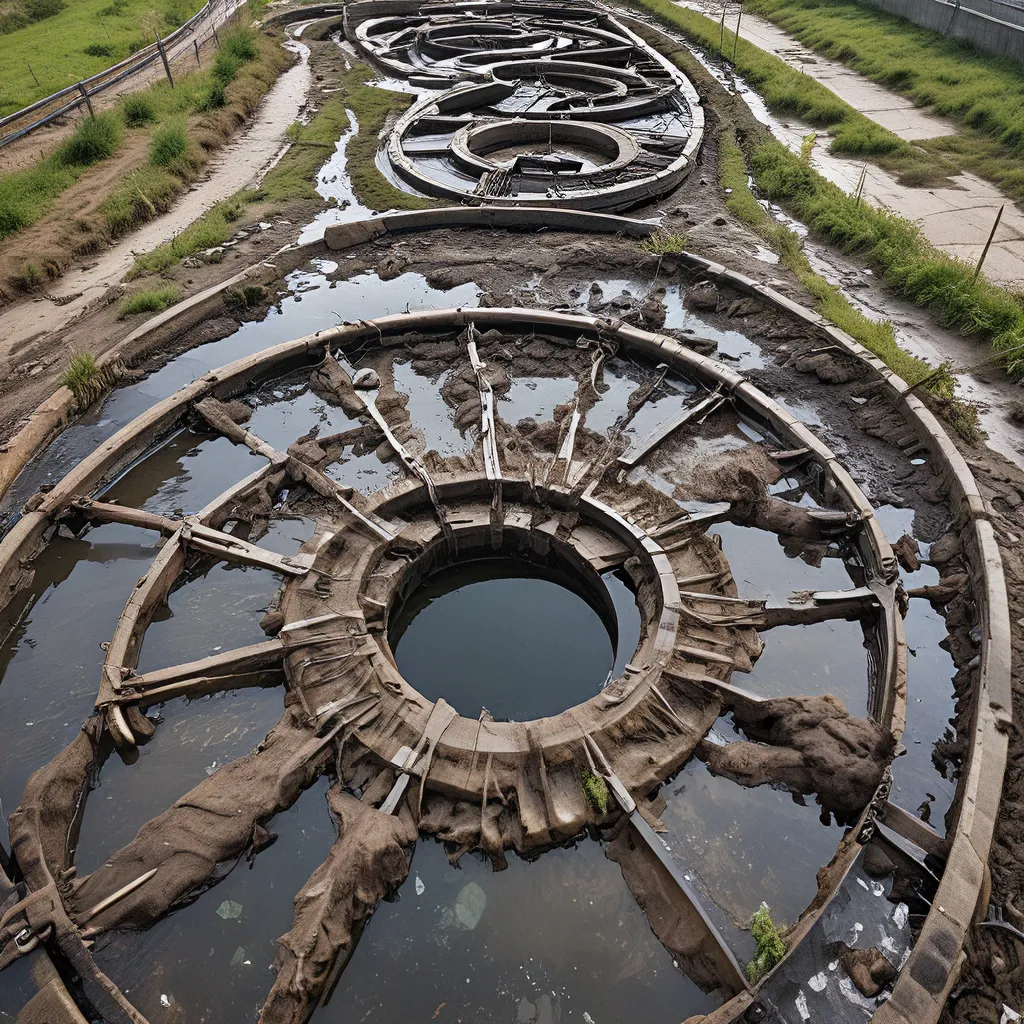
Wastewater – that murky, oft-forgotten byproduct of our modern lives – has long been seen as a nuisance, a problem to be managed and disposed of. But what if I told you that this same wastewater could hold the key to unlocking a circular economy that benefits both people and the planet?
It’s time to shift our perspective and see wastewater not as waste, but as a valuable resource waiting to be tapped. In this article, we’ll dive into the exciting world of circular economy approaches to wastewater management, exploring how we can transform this overlooked commodity into a boon for businesses, communities, and the environment.
Rethinking Wastewater: From Liability to Asset
Growing up, I always thought of wastewater as, well, just that – waste. It was something to be flushed away, out of sight and out of mind. But as I’ve learned more about the circular economy, I’ve come to see wastewater in a whole new light.
You see, the linear economy that has dominated for so long is fundamentally flawed. It’s a “take-make-waste” model where we extract resources, use them, and then discard them as trash. Wastewater is a prime example of this – we use water, then dump it back into the environment, often in a polluted state.
But the circular economy offers a radically different approach. Instead of treating wastewater as waste, it sees it as a valuable resource to be recovered, recycled, and reused. By closing the loop and keeping materials in circulation, we can eliminate waste and regenerate natural systems.
Tapping the Treasure Trove of Wastewater
So what exactly can we find in wastewater that makes it so valuable? It turns out, a whole lot more than you might think. Wastewater is a veritable treasure trove of resources, containing everything from nutrients and energy to valuable metals and biopolymers.
According to the Ellen MacArthur Foundation, the current food system alone generates $1 trillion worth of food waste each year, much of which ends up in wastewater. That’s an enormous amount of untapped potential – nutrients, organic matter, and even bioenergy that could be extracted and reused.
But it’s not just the food system that contributes to this resource-rich wastewater. Industries like mining, manufacturing, and textiles also produce wastewater streams laden with valuable materials. Metals, minerals, and even rare earth elements can be recovered and recirculated back into the economy.
Unlocking the Circular Potential of Wastewater
So, how exactly can we tap into this circular gold mine of wastewater? It all starts with a shift in mindset – from seeing wastewater as a liability to recognizing it as a valuable asset. And the good news is, there are already innovative companies and technologies leading the way.
One shining example is Alpha Wastewater, a company that specializes in circular economy approaches to wastewater management. They’ve developed advanced treatment technologies that can extract a wide range of resources from wastewater, including nutrients, biopolymers, and even biofuels.
But it’s not just about the technology – it’s also about rethinking the system as a whole. Cities, for instance, play a crucial role in unlocking the circular potential of wastewater. By sourcing food locally and regeneratively, they can reduce the burden on wastewater systems and create new revenue streams from the recovery and reuse of organic materials.
Circular Solutions for a Sustainable Future
As we’ve seen, the potential of wastewater as a resource is immense. By embracing circular economy principles, we can transform this overlooked byproduct into a treasure trove of valuable materials, fuels, and regenerative solutions.
But this is just the beginning. Wastewater is the tip of the iceberg when it comes to the circular economy. Across industries and sectors, we’re seeing a growing movement to eliminate waste, circulate materials, and regenerate natural systems.
It’s an exciting time, and the future looks bright. So, the next time you flush the toilet, remember – you’re not just making a mess, you’re unlocking the potential for a more sustainable and circular world. Who knows what hidden gems might be lurking in that wastewater?